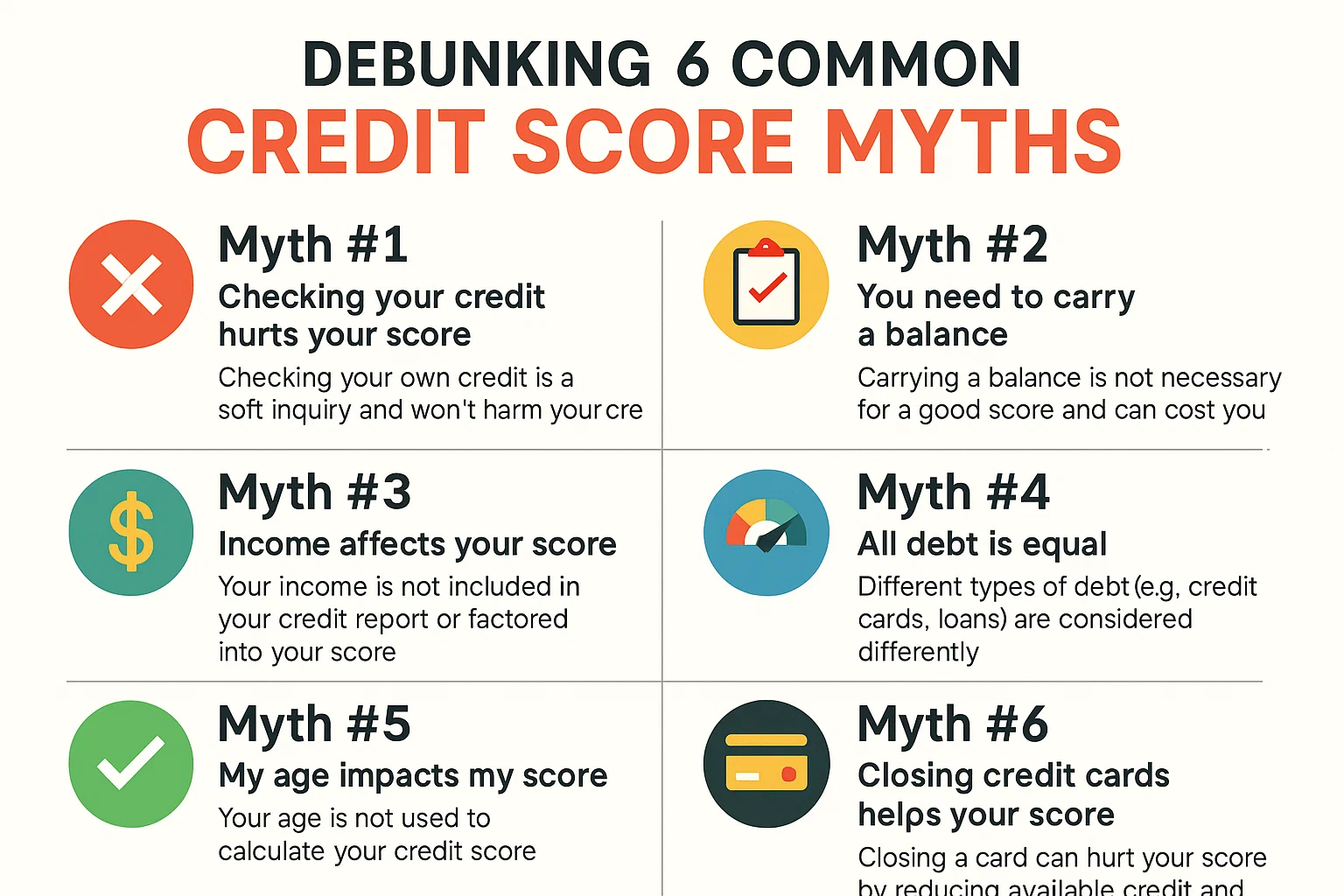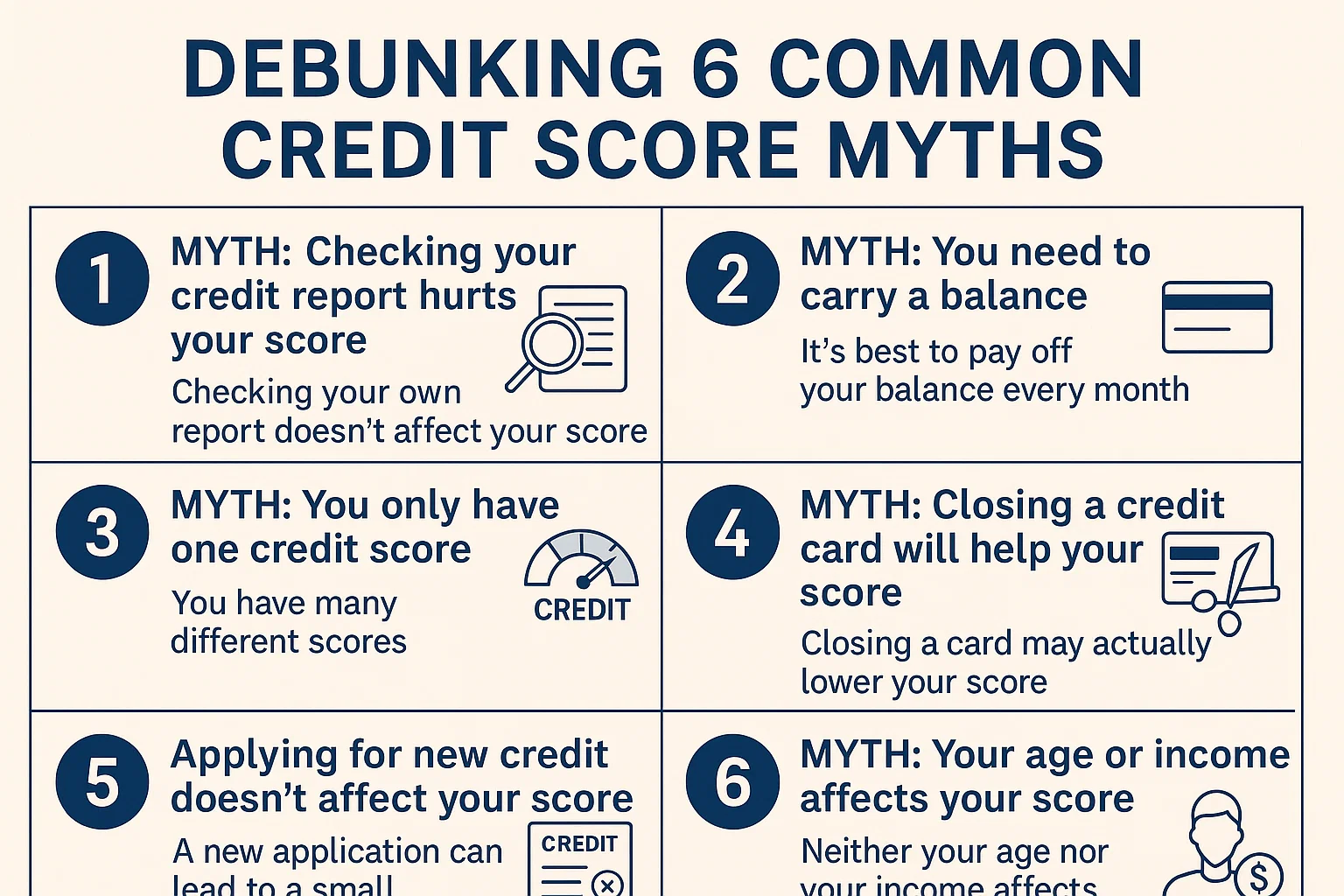Debunking 6 Common Credit Score Myths

Debunking 6 Common Credit Score Myths
Understanding how to improve your credit score is valuable at any age, as it significantly impacts many financial decisions. Below, we clarify six common credit myths.
Myth #1: My Employer Can Check My Credit Score
This is one of the most frequently misunderstood aspects of credit scores. While some employers may request permission to conduct a credit background check during the hiring process (with your consent), they only review your credit history—not your credit score. Many people confuse “credit report” with “credit score,” but they are not the same.
Myth #2: Carrying a Credit Card Balance Improves Your Score
Some believe that maintaining a monthly balance on a credit card helps boost their credit score. While responsible credit card use is essential for building credit, carrying a balance does not improve your score. In fact, paying your balance in full and on time each month is the best approach. Carrying a balance leads to interest charges and can negatively affect your credit utilization ratio, which makes up 30% of your credit score.
Myth #3: Age and Income Affect Your Credit Score
Your age and income do not directly influence your credit score. While a longer credit history (15% of your score) can be beneficial, age itself is not a factor. For example, an 85-year-old with a new credit card may have a lower score than a 30-year-old with a decade of responsible credit use. Similarly, while higher incomes may help manage debt, income itself is not part of credit score calculations.
Myth #4: Free Annual Credit Reports Include Credit Scores
Federal law entitles you to a free credit report from each of the three major bureaus (Equifax, Experian, and TransUnion) annually—but not a free credit score. A credit score is a three-digit number (300–850) derived from your credit report data, including payment history, credit age, and credit mix. You must access your reports separately from your score.
Myth #5: Checking Your Credit Score Lowers It
There’s a key difference between “hard” and “soft” credit inquiries. When a lender checks your credit for a loan or credit application, it’s a hard inquiry, which may slightly lower your score. However, checking your own score is a soft inquiry and has no impact. You can monitor your credit as often as needed without worry.
Myth #6: Credit Only Matters for Loans and Credit Cards
Your credit affects more than just borrowing. Landlords, utility companies, and even employers may review your credit history. Landlords check for financial responsibility, utility providers assess payment patterns, and some employers (especially in finance or security-sensitive roles) may evaluate credit as part of hiring decisions.
By understanding these myths, you can make smarter financial choices and maintain a strong credit profile.




